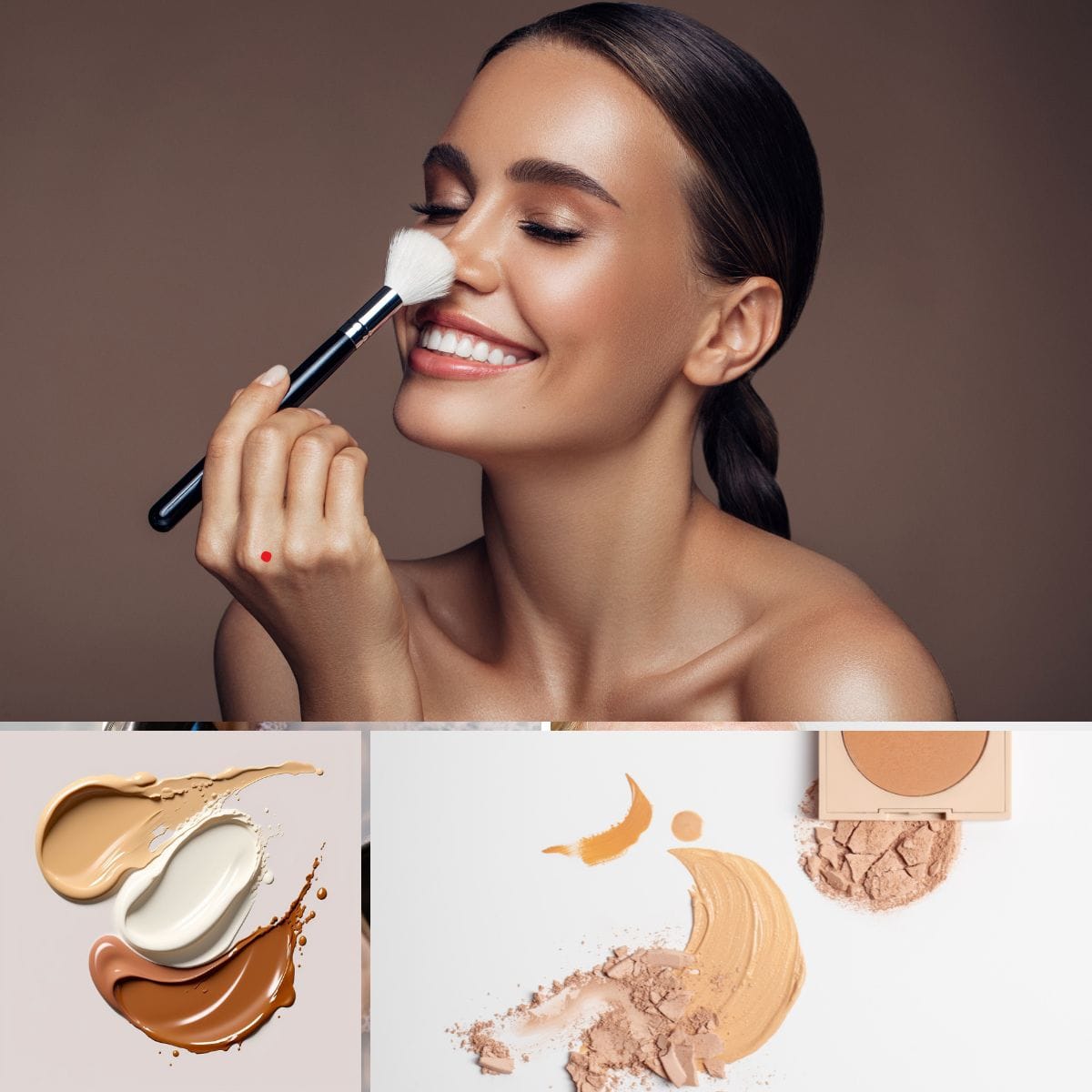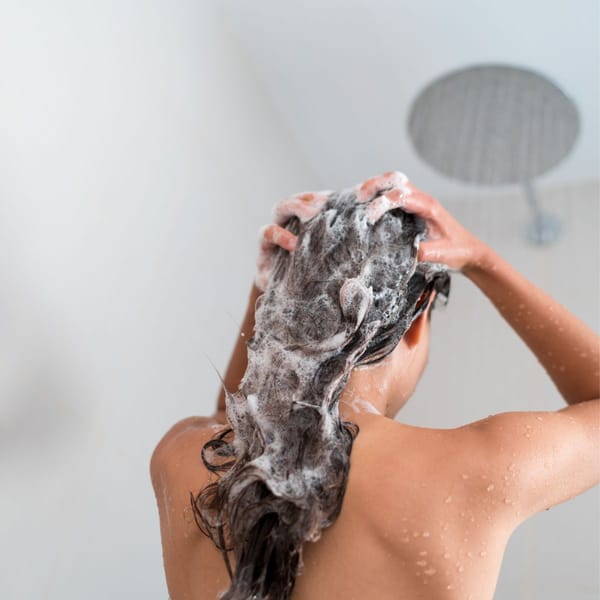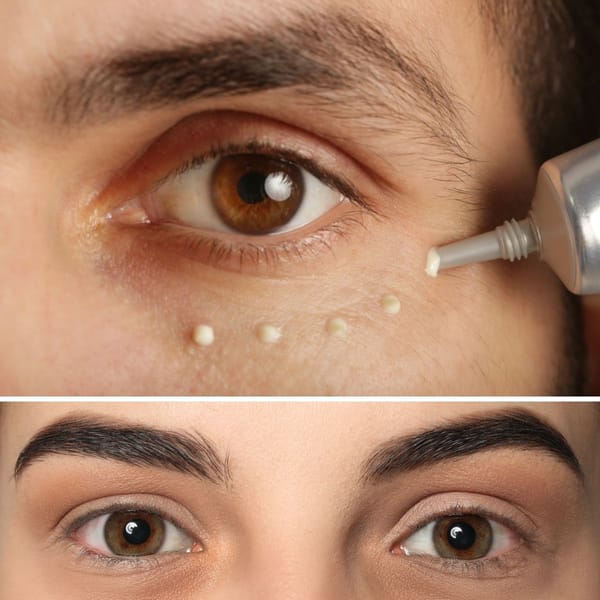When it comes to perfecting your makeup routine, choosing the right foundation for your skin type is crucial. For those with oily skin, the battle between matte and dewy foundations is ongoing. But which one truly reigns supreme for managing that excess shine and maintaining a flawless complexion throughout the day?
Key Takeaways:
- Understanding your skin type is essential in choosing between matte and dewy foundations.
- Matte foundations are typically better for oily skin as they help control excess oil and shine.
- Dewy foundations can still be an option for oily skin when used with the right products and techniques.
Understanding Oily Skin and Foundation Choices
Oily skin produces an excess amount of sebum, which can lead to a shiny complexion and makeup that seems to slide off your face. When it comes to foundation, those with oily skin types often struggle to find a formula that will stay put and not exacerbate the oil slick. The key is to look for foundations that are oil-free and have oil-absorbing ingredients to maintain a shine-free look.
Matte Foundations: The Oil-Control Champion
Matte foundations are designed to absorb excess oil, offering a matte finish that can keep your skin looking shine-free throughout the day. These matte formulas are often non-comedogenic, meaning they won't clog your pores, and they provide full coverage that can mask imperfections like dark spots and acne. A matte foundation, applied with a foundation brush or makeup sponge, can give you a smooth, even canvas that stays put even in the face of oily skin challenges.
Dewy Foundations: The Glow Giver
Dewy foundations, on the other hand, are known for their hydrating formula and ability to give the skin a natural glow. They often contain hydrating ingredients that can make the skin look fresh-faced and glowing. However, for oily skin types, dewy formulas can sometimes lead to excess shine. To combat this, makeup artists recommend using a mattifying primer underneath or setting the dewy foundation with a translucent powder to help control the shine.
The Role of Skin Prep in Foundation Application
Before you even reach for your foundation brush, prepping your skin properly is essential. For oily skin, this means using a gentle cleanser followed by an oil-free moisturizer. A mattifying primer can also create a smooth base that helps your foundation adhere better and last longer. This step is crucial whether you choose a matte or dewy foundation, as it can significantly impact the final result of your makeup.
Balancing Act: Combining Matte and Dewy
Who says you have to choose just one? Many makeup enthusiasts with oily skin use a combination of both matte and dewy products to achieve a balanced look. For instance, a matte foundation can be used all over the face, while a touch of dewy highlighter on the high points, like the cheekbones and brow bones, can add a subtle glow without contributing to an overall oily appearance.
The Impact of Climate and Environment
Your environment plays a significant role in how your foundation performs. In humid climates, a dewy foundation might make your skin sweat more, leading to a greasy feel. Matte foundations are typically more sweat-resistant and can withstand higher temperatures without melting away. Always consider your daily activities and the weather when deciding between a matte or dewy finish.
Foundation Formulas: Liquid vs. Powder
Foundations come in various forms, including liquid, cream, and powder. Oily skin types often benefit from powder form foundations, which inherently have a matte finish and can absorb excess oil. Liquid foundations can be found in both matte and dewy finishes, and the choice between them depends on the specific formula and your personal preference.
The Influence of Skin Condition and Age
Your skin condition and age can also influence your foundation choice. Matte foundations can sometimes accentuate fine lines and dry patches, making them less ideal for dry or mature skin. However, for oily and acne-prone skin, matte formulas can provide more coverage and a longer-lasting matte effect. Dewy foundations can offer a more hydrating feel, which might be beneficial for those with dry skin or who want a more youthful, dewy look.
The Final Touch: Setting Your Foundation
No matter which foundation you choose, setting it with the right products can make all the difference. For matte foundations, a light dusting of matte powder can lock everything in place. For dewy foundations, a quick spritz of a setting spray or face mist can add longevity to your dewy look while keeping the skin hydrated.
Personal Preference and Confidence
Ultimately, the best foundation for you is the one that makes you feel confident and comfortable in your skin. Whether you prefer the full coverage and shine control of a matte foundation or the sheer coverage and natural glow of a dewy foundation, what matters most is how the product makes you feel and how well it works with your unique skin type and makeup routine.
Summary
Choosing between a matte or dewy foundation for oily skin depends on various factors, including skin type, personal preference, and environmental conditions. Matte foundations are generally better suited for oily skin due to their oil-absorbing properties and long-lasting matte finish. However, with the right skin prep and setting products, dewy foundations can also be an option for those seeking a glowing look. Remember, the best foundation is one that aligns with your skin's needs and your desired makeup outcome.
FAQ Section
Q: Can I use a dewy foundation if I have oily skin? A: Yes, you can use a dewy foundation for oily skin, but it's important to prep your skin with a mattifying primer and set the foundation with a translucent powder to control excess shine.
Q: How do I prevent my matte foundation from looking cakey on oily skin? A: To prevent a cakey appearance, apply your matte foundation in thin layers using a makeup brush or sponge and set it with a light dusting of translucent powder. Also, ensure your skin is well-moisturized and primed before application.
Q: Is it better to apply foundation with a brush or sponge for oily skin? A: Both tools can be effective for oily skin. A foundation brush can provide a more full-coverage, matte finish, while a makeup sponge can offer a more natural, sheer coverage. The choice depends on the desired finish and the foundation formula you are using.







